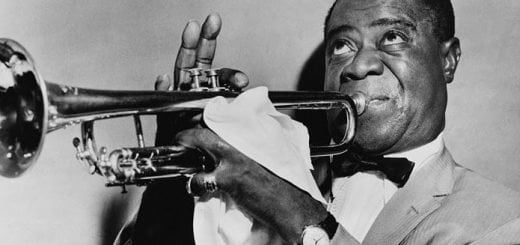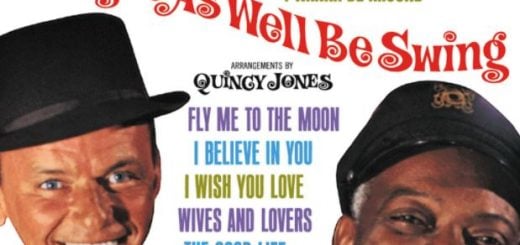Summertime by Louis Armstrong Lyrics Meaning – The Lullaby That Embraces Cares and Comforts Dreams
Lyrics
Fish are jumpin’ and the cotton is high
Oh, your daddy’s rich and your ma is good lookin’
So hush, little baby, don’t you cry
One of these mornings you’re gonna rise up singing
Yes you’ll spread your wings and you’ll take to the sky
But ’til that morning, there’s nothin’ can harm you
With daddy and mammy standin’ by
Summertime, and the livin’ is easy
Fish are jumpin’ and the cotton is high
Oh, your daddy’s rich and your ma is good lookin’
So hush, little baby, baby don’t you cry
Don’t you cry
Louis Armstrong’s rendition of ‘Summertime’ is much more than a seasonal classic; it is an aural representation of tranquility and tenderness that has sailed through generations. The song, originating from George Gershwin’s opera ‘Porgy and Bess,’ mellifluously captures a concoction of hope, comfort, and the unmistakable lilt of the American South. Armstrong, with his gravelly warmth, elevates these lyrics into a soul-stirring melody that speaks directly to the heart.
Exploring the essence of ‘Summertime’ requires delving beyond its smooth surface. The lyrics contain layers of meaning about life, economic disparity, and the universal longing for a better future. Finding the balance between the haunting subtleties of the text and the historical context in which it was birthed grants us a greater understanding of its continued resonance.
A Lullaby of Hope in the Heat of Struggle
While ‘Summertime’ may present itself as a soft lullaby promising easy living, the song was born out of the Great Depression era, a time when such luxuries were far from reach for the African American communities in the South. Louis Armstrong, through his immersive trumpet-playing and rich vocals, evokes the dichotomy of struggle shadowed by hope. The song whispers of an easier time, a momentary solace for those burdened by life’s harshness.
Armstrong’s interpretation imbues the lyrics with a deeper resonance, revealing an underlying narrative of resilience. The contrasting imagery of leaping fish and high cotton – symbols of nature’s bounty and oppressive labor – encapsulate the sobering reality faced by many during the era, yet Armstrong’s voice carries with it an undeniable optimism for change.
A Glimpse into the Storied Past of the South
The pastoral images conjured by ‘Summertime’ serve as an ode to the South’s complex historical tapestry. Armstrong’s vocals transport the listener to a bygone era, characterized by its socio-economic divides. Rich daddy, good-looking mama, and cotton fields point to a deeply woven narrative of privilege and beauty juxtaposed with the dark undertones of racial and class inequalities.
Contrary to the bucolic tranquility the song suggests, the lines are a subtle reflection of a society grappling with its disparities. Armstrong, who himself witnessed and faced these inequalities, manages to balance the tangible sting of the past with a soothing portrayal of the Southern landscape.
Decoding the Enigmatic Stillness within the Melody
Beneath the calm exterior of the song, there resides a hidden meaning, a layered complexity that speaks to the soul’s yearning for protection and safety. Summertime isn’t just a season in Armstrong’s interpretation; it’s a sanctuary, a spiritual safe haven where the harshness of reality can’t intrude. The repetitive assurances offer comfort not only to a child in the song but to anyone in search of solace.
The song is a musical embrace, a shelter from storms seen and unseen. When Armstrong croons about standing by, it’s more than a physical presence; it’s a vow of unwavering emotional support through the trials and tribulations of life, symbolized by the lingering notes of his trumpet.
Breaking Down the Classic Lines That Haunt and Heal
‘Summertime, and the livin’ is easy’ – these iconic opening words, immortalized by Armstrong’s sonorous delivery, have echoed through decades as a harbinger of solace. They are a poetic promise spoken against a backdrop of economic depression and act as a beacon for those in pursuit of the American Dream.
Furthermore, the paternal imagery conjured by ‘daddy’s rich and your ma is good lookin” serves as metaphors for abundance and aesthetic pleasure. Armstrong projects an idyllic family tableau, extending a narrative full of warmth and the unwritten promise of opportunities and aesthetic grace awaiting the infant protagonist. It’s a verse that wraps the listener in the effortless embrace of a warm Southern night, Armstrong’s voice guiding them into a dreamland where all is well.
The Sublime Legacy of Louis Armstrong’s ‘Summertime’
Armstrong’s ‘Summertime’ is not just a fixture in the jazz canon; it has become a timeless anthem of hope, aspiration, and assurance. Its longevity is a testament to its ability to resonate with audiences who find different meanings within its melody with every changing era.
While it could be seen as a simple serenade meant to ease a child to sleep, the song’s nuanced delivery and universal themes have provided a soundtrack to the lives of many, extending its reach well beyond its original context. Armstrong created a cultural touchstone – a lullaby for the masses that soothes, inspires, and continues to define the ebb and flow of the human experience.








